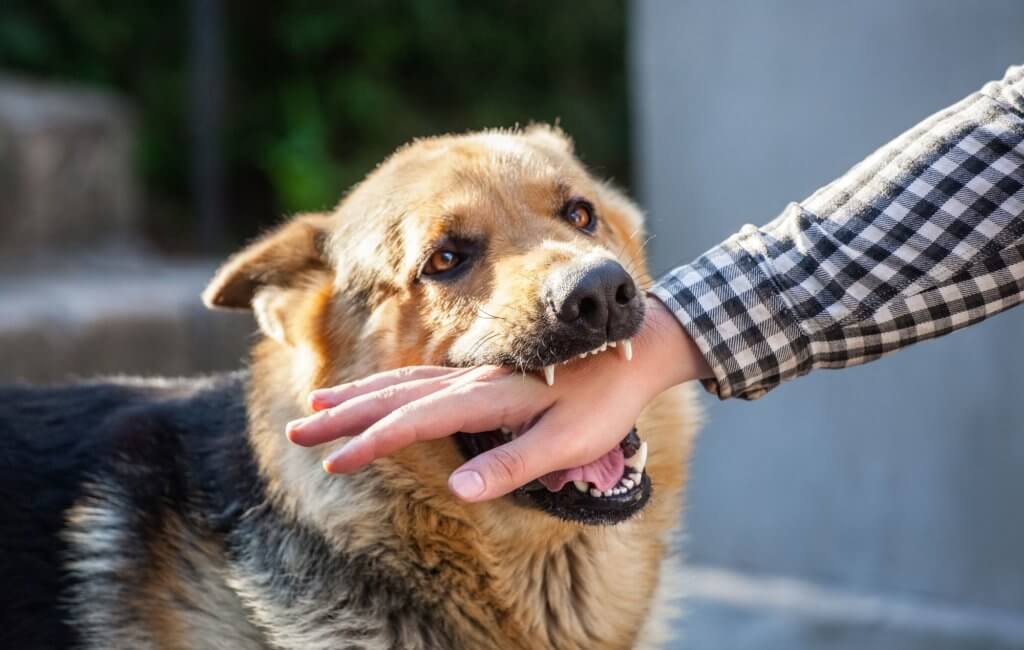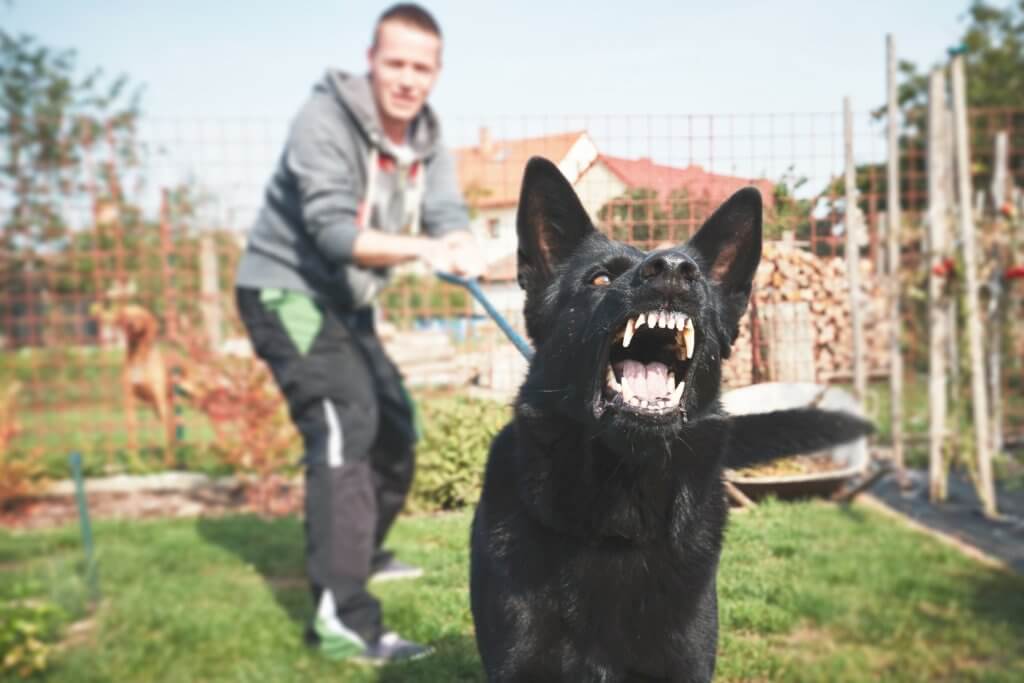December 1, 2017
As we discussed in another article, Nevada is a “one-bite” state, but you are still entitled to personal injury compensation from the owners if you have been bitten by a dog. You may also be entitled to recover monetary damages from any other persons who may have some control over the dog, such as a landlord. If you have suffered from a dog bite or attack, it is a good idea to consult with a Nevada personal injury attorney to discuss your legal options.
Nevada Dog Bite Laws
People are bitten by dogs all the time. As recently reported, a 47-year old woman in Bullhead City was jogging early on a Wednesday morning and, suddenly, a stray pitbull dog came up from behind and bit her on the hand. The dog was described as large, dark gray in color with one white paw. The woman had to fight off the dog. Police and animal control authorities were hunting for the dog and its owner as of the writing of the news report.
If the dog’s owner can be found, the Bullhead City woman can recover for any and all of her injuries as well as damages including:
- Medical bills including costs for reconstructive surgery
- Prescription and medications
- Lost wages if she had to miss work because of the dog bite
- Disfigurement
- Pain and suffering
- Loss of society
- Loss of consortium
In addition to economic and non-economic damages, in some cases, dog bite victims might be able recover punitive damages if the dog owner willfully, intentionally, maliciously or with reckless disregard allowed their dog to bite you.
What is Negligence Per Se for Dog Bite Lawsuits in Nevada?
In general, dog bite lawsuits are considered cases of negligence. To prove negligence, you must prove:
- That the dog owner owed you a duty to keep you safe from being bitten
- That the owner breached that duty
- That the breach was the proximate cause of your injury and
- Injury or damages
In general, if someone is negligent and you prove all four elements, then you can recover monetary damages for your losses and injury. The “duty” element can be proven if you can show that the dog bit someone before, or if the owners knew the dog had a propensity to be violence, menacing, etc.
But if the dog was off its leash or otherwise roaming free, that might also satisfy the duty element under the legal concept of negligence per se. In cases of negligence per se, the person committing the negligence has violated a law meant to protect the public. As such, the conduct that violated the law is automatically considered negligent.
Many dog bites fall into this category. If you have been injured by a dog that is running free or is not otherwise under control of its owner, the owner has committed negligence per se. There is no general state-wide dog bite statutes, but many county laws and city ordinances require that dogs be kept on leash or otherwise confined, whether or not they are considered vicious dogs.

For example, in Washoe County, Section 55.460 of the County Code states the following:
- It is unlawful for any animal, except cats, to be at large within the congested areas as designated herein.
- It is unlawful for any animal, to endanger property, public safety, itself or any other animal.
- A violation of subsection 1 or 2 is committed by the owner or person having custody, control or possession of the animal.
Section 55.100 requires that animal owners restrain their animals. The section states:
“In the congested areas of the county, every person who is the owner of or has the care, custody or control of any cow, dog, goat, horse, ox, poultry, rabbits or any rodent, sheep, swine or exotic animal, has an absolute duty to keep the same upon the premises under the control of such person, restrained by a fence, cage, coop, chain, leash or other adequate means so that the animal shall not leave the premises upon which it is kept.”
There are similar laws in other Nevada Counties. See Clark County Code, Sec. 10.36.040. City Ordinances also have similar provisions. See Las Vegas Municipal Ordinance Sec. 7.36.030
Thus, a dog owner is much more likely to be liable for a dog bite if the dog has gotten loose.
Even if the dog has not gotten loose, an owner still might have violated their duty if the dog was known to be violent or aggressive and, therefore, it was foreseeable that the dog would bite someone.
Obviously, every case is unique. What you have to prove and the amount of money damages to which you are entitled will vary depending on the county where you live, the severity of your injury, the culpability of the dog owner, etc. You will need experienced personal injury attorneys like those at Paul Padda Law.
Others May Be Liable
Under some circumstances, others in addition to the dog owner might be liable. In two cases, for example, landlords have been held to be liable or potentially liable. Normally, landlords would not be liable for the dog bites of their tenants’ dogs, because, in general, landlords do not have control over the dogs and, thus, have no duty.
But, in at least two cases, Nevada landlords have been held potentially liable where the landlords knew of the dogs, knew them to be dangerous and where the dogs escaped through defective fencing/gates.

In Wright v. Schum, 781 P.2d 1142 (Nev. 1989), the tenant had a pitbull. The landlord knew the dog was vicious since he had been told about it and said to neighbors that he would “take care of the problem.” The landlord made a deal with the tenant to not evict him if he kept the pitbull on a chain or inside the house. The landlord also had control over the property and its fencing. One day, the dog escaped the yard through a defective gate and attacked a child. Under these circumstances, our Supreme Court held the landlord could be liable. The landlord had undertaken to perform his tenant’s duty to confine the pitbull, and had negligently breached that duty — by, for example, not keeping the gate in good repair — and therefore was potentially liable for the child’s injuries. The Supreme Court sent the case back to the lower court for a trial.
Likewise, in the case of Harry v. Smith, 893 P.2d 372 (1995), a landlord was held potentially liable. It that case, there were two owners of a certain home. One of the owners (Mrs. Smith) allowed three of her sons to manage, use and otherwise completely control the house. Mrs. Smith was elderly and lived elsewhere since she had suffered several small strokes and had contracted Alzheimer’s disease.
The three sons allowed tenants (or house-guests) to move into the home and they had two pitbull dogs. At least one of the sons knew that the one of the pitbulls had previously bitten someone in the stomach. The property had a three-foot chain link fence, but it was badly maintained. At one place in the back, the fence had been beaten and pushed down and was only two feet high. One day, one of the dogs escaped over the low portion of the fence and bit a neighbor. Under these circumstances, the court held the owner (Mrs. Smith) potentially liable since her sons (as her agents) knew about the vicious tendencies of the tenants’ dog and because they had failed to properly maintain the fence. By contrast, the second co-owner of the house (Mrs. Pollard) was held not liable as a matter of law. Mrs. Pollard had no involvement in maintaining the house, did not know about the tenants or the dogs, etc. She was just a co-owner.
Punitive Damages for Nevada Personal Injury Claims
Under some circumstance, you might be able to recover punitive damages. Under Nevada law, “exemplary” (aka punitive) damages can be recovered in personal injury cases (like a dog bite case) if there is proof of oppression, fraud, or malice (by the dog owner). Such damages are addition to whatever compensatory damages you receive.
Reach Out to Nevada Personal Injury Attorneys
Contact the personal injury attorneys at Paul Padda Law. You may be entitled to monetary damages if you have been injured or bitten by a dog.

